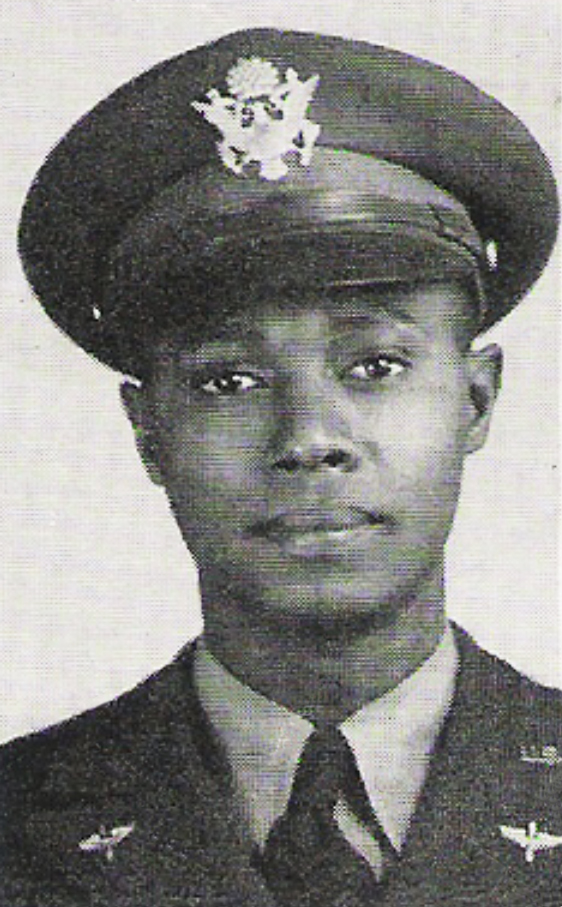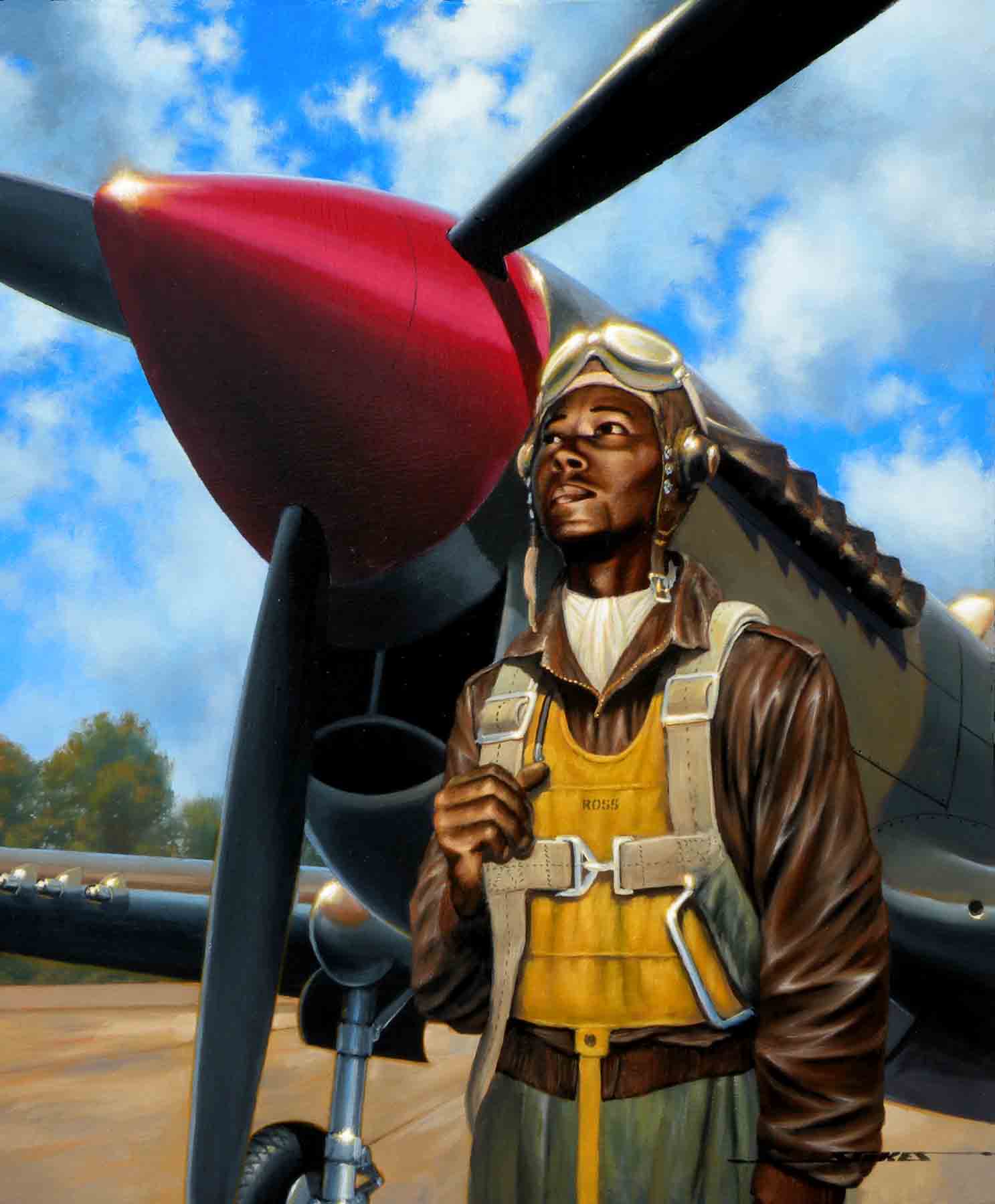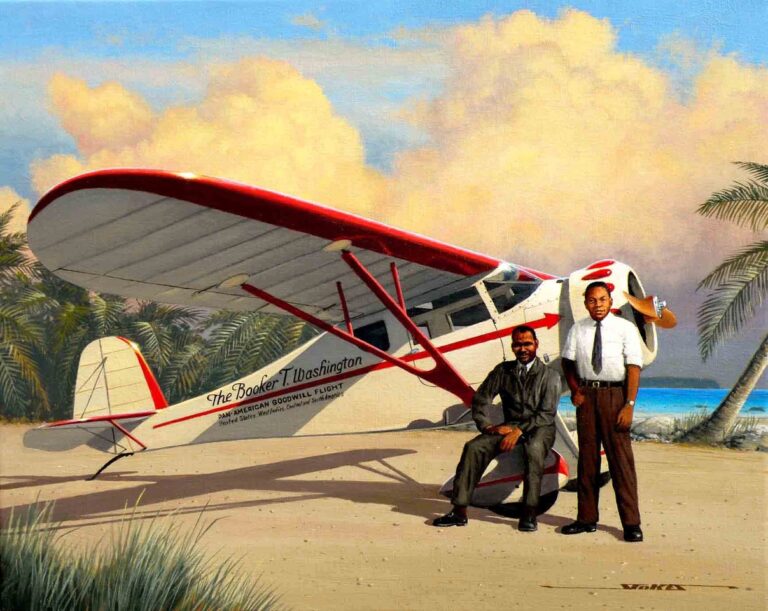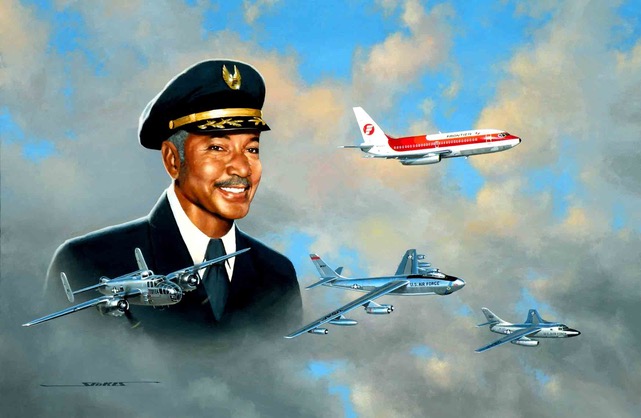Ross’s alma mater, West Virginia State College (now West Virginia State University) had a Civilian Pilot Training Program (CPTP) created by the Civil Aeronautics Authority in 1939 to increase the number of active pilots in America in response to the ongoing war in Europe. The federal government had selected Tuskegee Institute as the official pilot training program site for African Americans pilots.
WVSC and the other four historically black colleges and universities would serve as feeder schools. WVSC officials nominated two alumni for the program: Mac Ross & George S. Roberts, a 1938 WVSC graduate. Ross was admitted into the U.S. Army Air Corps Tuskegee Aviation Cadet training program’s inaugural July 19, 1941 class at Tuskegee Army Air Field.
During cadet training, Ross’s P-40 caught fire in mid-air & he safely parachuted out; he was concerned it would be called pilot error and provide grounds for critics that blacks should not be flyers. He recalled thinking, “I’ve wrecked a ship worth thousands of dollars. Maybe they’ll start saying Negroes can’t fly”. An investigation found it was mechanical, but Ross always felt he and the others were under intense scrutiny every time they flew. The incident made him the first-ever African American member of the Caterpillar Club, an informal association of people who have successfully used a parachute to bail out of a disabled aircraft. His flight instructor Col. C. I. Williams said, “Mac was a good pilot. It takes a special kind of individual to be a good fighter pilot. He was a pilot’s pilot.”
On March 7, 1942, only five cadets successfully graduated from the program, receiving their wings: 2nd Lt. Ross, Captain Benjamin O. Davis Jr., 2nd Lt. Charles DeBow, 2nd Lt. Lemuel R. Custis, and 2nd Lt. George S. Roberts. Known as Class 42-C-S, they were the first African-American U.S. Army Air Corps pilots.
On May 26, 1942, Ross was promoted to Squadron Commander of the 332nd Fighter Group’s 100th Fighter Squadron.
During World War II, Ross flew over 50 combat missions in the European Theater. On July 10, 1944, Ross died in an aircraft accident while flying a P-51 Mustang.





